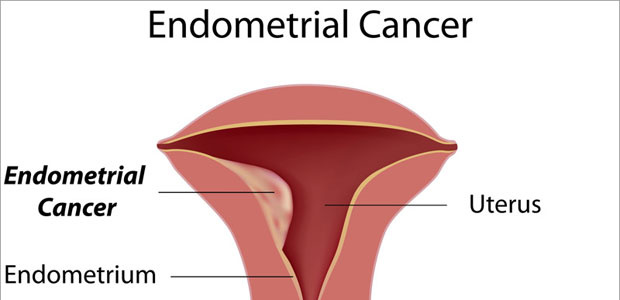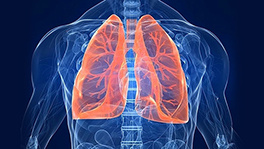
What is endometrial cancer?
Endometrial cancer is the malignant tumor happened in endometrial gland, which is the one of the three malignant tumors of female and ranks 7% of total female cancers, 20-30% of genital tract malignant cancer. Endometrial cancer can happen in any age, but the high risky age is among 58-61, nearly 50-70% is happened after menostasia. Recent years, there is an increasing trend for endometrial cancer and even exceeds that of cervical cancer. The 5 years survival period for advanced stage endometrial cancer patients is about 25-30%, and the recurrence of endometrial cancer is the main factor that influences the 5 years survival rate.
What are the causes of endometrial cancer?
By now the medical field still cannot define the exact causes of endometrial cancer. Generally it is believed that multi-factors have contributed the occurrence of endometrial cancer, which include: cervical erosion, frequent sexual behavior, disordered sex life, ignoring sexual behavior cleaning as well as menstruation, redundant prepuce of sex partner, herpes type II virus infection as well as HPV infection, venereal disease, mantle bacteria infection, etc.
If you are diagnosed with cancer, please consult online doctors for more information.
High risky group of endometrial cancer
Obese people: hyperliposis can somehow increase the risk of suffering from endometrial cancer;
Diabetic patients: the risk of suffering from endometrial cancer for diabetic patients or these people with abnormal glucose tolerance is 2.8times higher than that of normal people;
High blood pressure patients: endometrial cancer appeals to high blood pressure patients;
Menstrual disorder patients: menstrual disorder or heavy menstruation may increase the risk of suffering from endometrial cancer 3 times higher than that of normal women;
Early menarche or later menopause females: menarche comes before 12 years old may increase 60% risk of suffering endometrial cancer than these whose menarche comes after 12 years old, while menopause delays 6 years than that of normal menopause period may also increase the risk;
Endometrial cancer appeal to these female who give multiple birth to babies, or never have a child, or even have infertilities;
Polycystic ovarian syndrome;
Ovarian tumor patients: it may lead to menstrual disorder, postmenopausal bleeding, endometrial hyperplasia or endometrial cancer;
Females who take estrogenics have high risk for suffering from endometrial cancer.
If you are diagnosed with cancer, please consult online doctors for more information.
The symptoms of endometrial cancer:
There are no obvious symptoms in early stage, and it can only be detected during extensive survey or gynecologic examination for other reasons. Once symptoms appear, then they may manifest as follows:
Vaginal bleeding: this is the earliest and most common symptom for endometrial cancer, and it often manifests irregular bleeding, or heavy or light, and females before menopause often have heavy menstrual blood volume and it will last for a long time; after menopause, it often manifests as vaginal bleeding;
Vaginal apocenosis: the falling off of endometrial cancer tissue necrosis can cause effusion to be drained through vagina; and the effusion manifests like rice-water mixed with blood or purulence companied with evil smelling;
Pain: advanced stage patients often bear great pain which is caused by tumor pressing nerves and can be occurred at the position of lumbosacral area, hypogastrium or even extend to the leg;
Advanced stage patients can touch the enlarged womb under the hypogastrium, and it can cause swelling and pain to lower extremity or other systemic exhaustion like anaemia, emaciation, fervescence, dyscrasia, etc.
Auxiliary examinations can be carried out as per the above-mentioned symptoms to diagnose endometrial cancer, therefore, females shall pay attention to any changes occurred to menstruation and the characters of vaginal secretions. Once certain symptoms appear, go to hospital for examination timely.
If you are diagnosed with cancer, please consult online doctors for more information.
Diagnosis methods for endometrial cancer:
Segmented diagnostic curettage. Usually first curettage of cervical canals, then followed by uterine cavity examination, next followed by scoraping endomembrane inside the uterine cavity; after identifying the bottles of samples, send them for pathological examination. The result of pathological examination shall be regarded as the foundation of diagnosing endometrial cancer;
Hysteroscopy. It can directly observe the growth status of endometrial foci and sample suspect foci for biopsy or pathological examination;
Uterine cavity pipette. Apply specially-made uterine cavity sipper or brush to place inside the uterine cavity and take suction of secretions for cytological examination, or for screening;
B ultrasound. It can indicate the degree of muscular layer invasion.
Staging of endometrial cancer:
If it is definitely diagnosed that there is cancer, doctors shall further get to know the condition so that make out the most suitable treatment plan. The principle for judging stages of tumor relies on whether the tumor has invaded to adjacent tissues; whether there is metastasis, if there is, try to determine which parts it has spread to.
The stages of endometrial cancer are:
0 Degree: just adenomatoid hyperplasia occurs, that is cancer in situ;
I Degree: cancer is just limited within the uterine;
II Degree: cancer has invaded to cervix;
III Degree: cancer has spread outside of uterine (including vagina), but not exceeding lesser pelvis;
IV Degree: cancer has exceeded out the lesser pelvis or obviously invaded bladder or rectum mucosa.
If you are diagnosed with cancer, please consult online doctors for more information.
Treatment methods of endometrial cancer:
Surgery: It is common treatment solution for early stage endometrial cancer. It can be defined as per patients’ condition, for example, ecphyadectomy for complete uterus with double sides or catholicity complete uterus, and pelvic cavity lymph node dissection;
Radiotherapy: it is suitable for these patients who are not applicable for surgery; it is usually conducted through intracavity or extracorporeal irradiation;
Chemotherapy: it is usually applied for advanced stage patients who cannot perform surgery or radiotherapy or these patients reoccur after treatment.
Special TCM treatment for endometrial cancer:
TCM treatment for endometrial cancer has the function of regulating equilibrium and strengthening body resistance. It can support healthy energy and regulate spleen, liver kidney in early stage; while, in advanced stage, strengthening body resistance shall be mainstream to inhibit tumor without toxins, or induct the differentiation and apoptosis of cells without harm to normal tissue so that improve patients’ debilitation status. Combining TCM with western medicines, the therapeutic effect shall be magnified and exceed the effect of single therapy.
If you are diagnosed with cancer, please consult online doctors for more information.


 (MY)+60 10-898 8919
(MY)+60 10-898 8919























